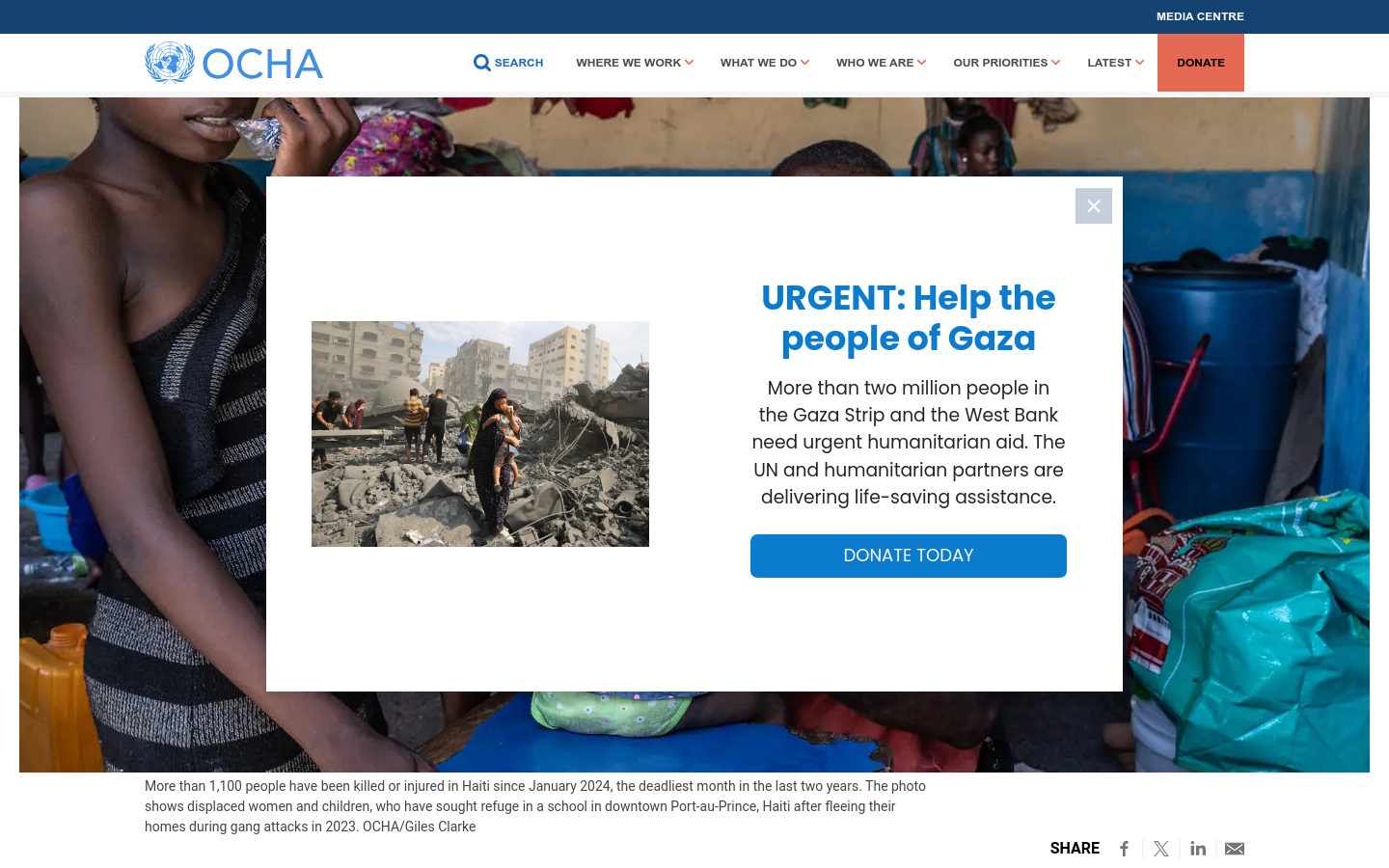Civic Tech Field Guide
Sharing knowledge and productively growing the fieldAdjacent Fields > Tech for public challenges > Disaster response and humanitarian tech - (94)
There's a long tradition of volunteer technologists rallying to aid communities in the aftermath of a disaster or humanitarian crisis. Many of the problems and solutions, such as managing skilled volunteers remotely, apply to other domains in the Civic Tech Field Guide. See also: Participatory Aid.
Showing 94 Results

Bangladesh Open Innovation Lab (BOIL)
Dhaka, BangladeshOur aim is to build a community that supports the Open Data and uptake of the Living Lab paradigm.

Climate Intelligence (CLINT)
EuropeThe CLIMATE INTELLIGENCE – alias CLINT – project (https://climateintelligence.eu/) is a European-funded project whose main objective is to develop an Artificial Intelligence framework composed of Machine Learning techniques and algorithms to process big climate datasets for improving Climate Science in the detection, causation, and attribution of Extreme Events (EEs), namely tropical cyclones, heatwaves and warm nights, droughts, floods, compound and concurrent events.

Hurricane Mapping (Sea Island Software)
Richmond, VAWe are Sea Island Software, Inc., a company specializing in hurricane threat assessment. HurricaneMapping.com is our storm tracking service for Google Earth and ESRI's ArcGIS.

HURREVAC
Richmond, VAHURREVAC is the decision support tool of the [US] National Hurricane Program, administered by FEMA, the USACE, and the NOAA National Hurricane Center.

A ten-year anniversary retrospective on the Humanitarian Data Exchange, which was accessed by 1.4 million people in 230 countries to download 2.7 million open humanitarian datasets in 2023.

AID:Tech
Dublin, IrelandAID:Tech was established in 2015 and was the first company in the world to deliver international aid over blockchain technology.

Oxfam’s UnBlocked Cash project (UBC) is a blockchain-powered cash transfer solution that is set to tackle this challenge. It is saving costs of distributing aid, reducing delivery times, and bringing more transparency and accountability in the process. It offers an opportunity to improve how aid is delivered without compromising the dignity of beneficiaries.

We provide research and development to support decision making in the field of sustainable mobility and humanitarian aid. We accomplish this through open geoinformation, open methods, open software and close collaboration with our partners.

The new ReliefWeb Numbers site aims to deliver easily discoverable topline numbers on the world's most pressing humanitarian crises.

A mobile app to help humanitarians find their ideal role. Search for jobs and filter via organisation, location, experience and career category. Save jobs to your library, share with others and apply directly through the app.

Humanitarian ID is an authentication service managed by the United Nations Office for the Coordination of Humanitarian Affairs (UNOCHA).


UN-OCHA's Peer-2-Peer (P2P) Support Project is a tool of the Inter-Agency Standing Committee (IASC). It's main objective is to provide senior level inter-agency peer support to Humanitarian Coordinators (HCs) and Humanitarian Country Teams (HCTs) to strengthen the delivery of collective humanitarian assistance and protection in country operations.

Kyiv Digital app
KyivDigitized the city's services, including e-petition tool, and "adapted them to conditions under martial law"

Welcome Alliance
GermanyThe Welcome Alliance is an alliance of civil society organizations, foundations, state institutions and companies initiated by ProjectTogether. Our goal is humane, needs-oriented and sustainable integration and participation of all new immigrants in Germany.

Chatbots in humanitarian contexts
United Kingdom of Great Britain and Northern Ireland (the)Report by the British Red Cross on aid groups' rush to use chatbots, from a skeptical perspective

Nidaa
Khartoum, Sudan"Just three days after the war started, Sudanese market intelligence firm DataQ launched a platform called Nidaa (meaning “call for help” in Arabic). It allows people in distress to post their requirements — from money and groceries to medical services and a ride to safety — so volunteers can reach out to them."

With its partners, OCHA contributes to principled and effective humanitarian response through coordination, advocacy, policy, information management and humanitarian financing tools and services.

Sudan Safe Passages Amen
Khartoum, Sudan"Sudan Safe Passages, a volunteer group of local and diaspora Sudanese, has built an app called Amen, said Hiba Sharief, a Silicon Valley veteran and senior technology executive at Amazon Web Services. Amen uses crowdsourced data to send real-time updates on secure transport routes and hospital availability." - Damilare Dosunmu

RW Response aggregates operational content from existing platforms and provides an authoritative source of information in new and existing humanitarian operations.

PetaBencana.id
JakartaPetaBencana.id provides residents, government agencies, and first responders with a real-time disaster information sharing system at an unprecedented scale. It is the first platform of its kind to harness the power of crowdsourcing through social media to aid humanitarian response and recovery.

Urban Ocean Lab
San FranciscoUrban Ocean Lab cultivates rigorous, creative, equitable, and practical climate and ocean policy for the future of coastal cities.

A native app that allows you to monitor more than 35 different severe weather and emergency alerts in your town, and other cities that matter to you, such as hurricanes, earthquakes and tornados.

Welcome Humanitarian Data & Digital Enthusiasts! Here You Can Find All Things Related To Data & Digital.

Because OpenStreetMap is a crowd-sourcing project where everyone can freely contribute to the map, the Humanitarian OpenStreetMap Team has devised measures to support high-quality crowd-sourced OSM data.

UK Humanitarian Innovation Hub (UKHIH)
United Kingdom of Great Britain and Northern Ireland (the)The UK Humanitarian Innovation Hub (UKHIH) will promote and support strategic and focused collaborations across government, science, private and humanitarian actors to drive urgently needed innovations and technologies in humanitarian responses to disasters and conflict.

Humanitarian Innovation Fund
CardiffAim: to improve outcomes for people affected by humanitarian crises by identifying, nurturing and sharing more effective and scalable solutions.

UN Mappers is a community of mapping enthusiasts collaborating to collect, validate and disseminate geospatial open data in areas where the United Nations carries out field operations with the goal of supporting the decision-making process with more accurate location-based data.

Response Innovation Lab Uganda
Kampala, UgandaThe Uganda Response Innovation Lab (Uganda RIL) was founded in 2018 by Save the Children Uganda. The main objective of the lab is to support the humanitarian response to 1.4 million refugees from eight East African countries, mainly from the Democratic Republic of Congo and South Sudan, and their host communities across 13 districts in the country through innovative approaches, systems, technologies and products.

Elixir
Sri LankaA platform to consolidate emergency medical needs across a country, create aid packages of medicines and supplies, centralize supplier quotations, select most cost-effective supplier, and match donors willing to fund aid packages.

With this mapathon, the UN Mappers community wants to join the efforts of the NGO Yer Çizenler and the OpenStreetMap community to map buildings and roads in the area.

Forerunner
San FranciscoThe Floodplain Management Platform for Resilient Communities

Turkish Earthquake Safe Spots Map - Deprem Güvenli Bölgeler Haritası
Yaprak, 27080 Şehitkamil/Gaziantep, TürkiyeGaziantep, Kahramanmaraş ve depremi yoğun bir şekilde hisseden Güneydoğu Anadolu illerinde sokakta kalan vatandaşlara


RapidDeploy
Austin, TXRealtime data. Unified Public Safety workflow. Reduced emergency response times.

Beirut Urban Observatory
Raymond Ghosn Building, American University of Beirut, Maroun Semaan Faculty of Engineering and Architecture PO Box. 11-0236 Riad El Solh 1107 2020, Beirut LebanonThe Beirut Urban Observatory is a platform of geolocalized urban data informing ongoing post-blast recovery efforts.

Mapping NGOs Repairs
Raymond Ghosn Building, American University of Beirut, Maroun Semaan Faculty of Engineering and Architecture PO Box. 11-0236 Riad El Solh 1107 2020, Beirut LebanonBetween March and September 2021, BUL researchers identified around 80 NGOs that participated in shelter repair within the neighborhoods severely affected by the August 2020 port blast. The data and findings are presented through a recent mapping output on the Beirut Urban Observatory.

Talk to Loop
The Hague, NetherlandsLoop’s feedback platform is revolutionising accountability in humanitarian aid and development by providing a space for accessible feedback, reliable complaints mechanisms and safe reporting of Sexual Exploitation, Abuse and Harassment (SEAH).

Internet Activism
Michigan, USAA 501(c)(3) non-profit creating modern digital solutions for real-world, physical problems.

Data Responsibility Working Group (DRWG)
The Hague, NetherlandsThe Data Responsibility Working Group (DRWG) is a global coordination body working to advance data responsibility across the humanitarian system.

IASC Operational Guidance on Data Responsibility in Humanitarian Action
The Hague, NetherlandsWhile each organization is responsible for its own data, humanitarians under the Inter-Agency Standing Committee (IASC) – which brings together United Nations (UN) entities, Non-Governmental Organization (NGO) consortia and the International Red Cross and Red Crescent Movement – need common normative, system-wide guidance to inform individual and collective action and to uphold a high standard for data responsibility in different operating environments.










